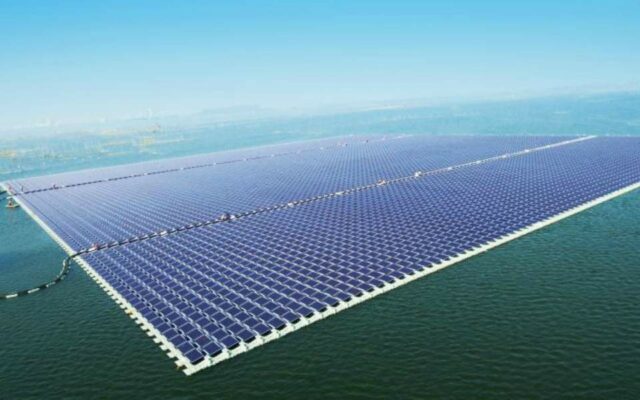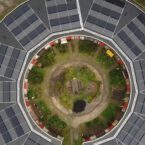Solving the climate crisis and reducing fossil fuel-generated pollution is one of humankind’s most pressing issues.
Scientists and researches are tirelessly working on new technologies that could reduce our dependence on fossil fuel and this next technology looks very promising.
A series of researches from Norway and Switzerland concluded that by clustering millions of solar panels on a floating island could help convert carbon dioxide in seawater into methanol.
The clean energy obtained this way could power airplanes and trucks.
The research was published in the Proceedings of the National Academy of Sciences journal. Greenhouse gas emissions could be efficiently reduced this way and the paper states that the technology already exists and the ideal spots for installing this island would be North Australia, South America, and the Arabian Gulf.
“A massive reduction in CO2 emissions from fossil fuel burning is required to limit the extent of global warming. However, carbon-based liquid fuels will in the foreseeable future continue to be important energy storage media. We propose a combination of largely existing technologies to use solar energy to recycle atmospheric CO2 into a liquid fuel,” the study authors wrote in PNAS.
The results published in the paper also present the amount of energy that could be produced this way, and it is estimated at more than 15,000 tons of methanol per year.
To give you an idea, this amount can fuel a Boeing 737 airliner for 300 round trip flights between New York City and Phoenix.
The costs of such an investment and the maintenance of these islands are still to be explored, but for starters, the proposition sounds more than exciting.



















